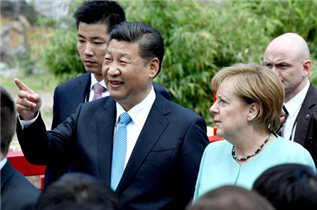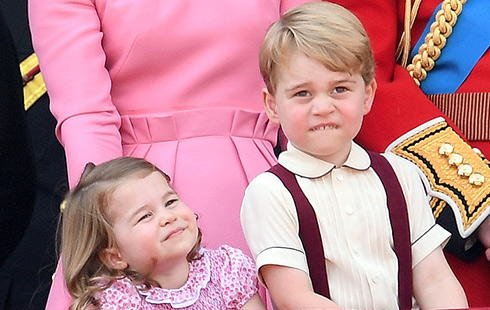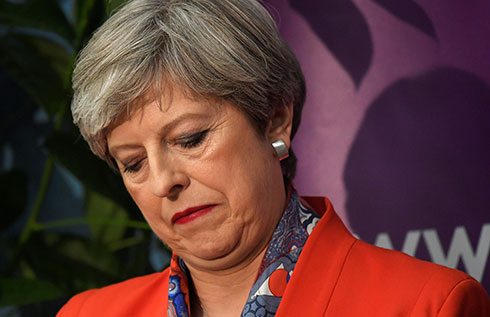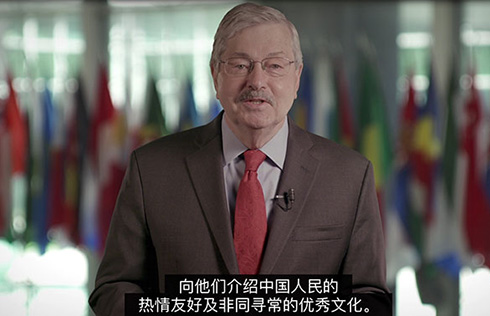Huge potential for China-Russia trade
Opportunities abound for further beneficial cooperation, say experts as summit looms
MOSCOW - About three months ahead of a BRICS summit in China, Russian analysts see immense potential to increase and diversify economic cooperation between the two countries.
Vast opportunities can be created during the development of the China-proposed Belt and Road Initiative and the process of Russia's "import substitution" industrialization, experts say, adding that closer economic ties between the two strategic partners will be mutually beneficial.
|
Buyers from Russia check out balloon products at Yiwu International Commodities Mall, Zhejiang province. Lyu Bing / For China Daily |
They also believe that China-Russia trade should be expanded to more nonenergy sectors so that bilateral economic cooperation can develop in a sustainable way.
These remarks come as the BRICS nations - Brazil, Russia, India, China and South Africa - are busy preparing for the ninth summit of the bloc's leaders on Sept 3 to 5 in Xiamen, Fujian province.
The development of transportation facilities is one of the key problems Russia faces, given its vast territory and low quality of roads and railways.
"Chinese investment and joint projects will play a major role in the vast areas of Siberia and the Far East, as well as in other parts of Russia," says Sergei Luzyanin, director of the Far Eastern Studies Institute of the Russian Academy of Sciences.
Luzyanin pins high hopes on the Belt and Road Initiative, which can "greatly stimulate the development of infrastructure".
To finance infrastructure construction, the BRICS New Development Bank should play a bigger role, says Yaroslav Lissovolik, chief economist of the Eurasian Development Bank.
Russia responded to Western sanctions following its annexation of Crimea in 2014 with an "import substitution" policy in various sectors in a bid to boost domestic industrial production.
The process of import substitution industrialization creates opportunities for Chinese direct investment in Russia, says Vitaly Monkevich, president of the Russian-Asian Union of Industrialists and Entrepreneurs.
"This is beneficial for both sides, since Chinese businesses will achieve a higher profit rate and the ability to sell products to China, and Russia will get investment and new jobs," says Monkevich.
According to the Ministry of Commerce, Chinese companies invested more than $100 million (89 million euros; £78.7 million) in Russia between January and April this year.
"We see a serious interest in Russia-China cooperation from business circles of both countries," says Monkevich.
Trade between China and Russia jumped by 26.2 percent year-on-year to $24.7 billion in the first four months of 2017, according to China's General Administration of Customs.
In addition to oil and gas, Russian analysts see the possibility of expanding bilateral trade to more areas.
Members of the Russian Asian Union of Industrialists and Entrepreneurs "often turn to us with requests for export of sunflower oil, honey, ice cream, confectionery and alcohol. ... We see great potential for the development of exports other than raw materials," says Monkevich.
As for space cooperation between Russia and China, Luzyanin expects joint manned space stations and joint space missions in the future.
Furthermore, Luzyanin and Lissovolik, who are also members of the Russian think tank Valdai Discussion Club, suggest that Chinese and Russian computer programmers cooperate in ensuring cybersecurity and developing internet-based business.
"All this together creates a new quality for the growth of Russia-China cooperation. We can deal with oil and gas and talk about diversifying cooperation at the same time," says Luzyanin.
Xinhua



















